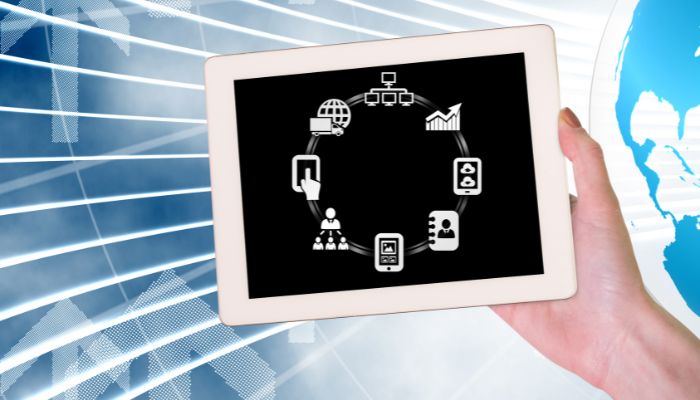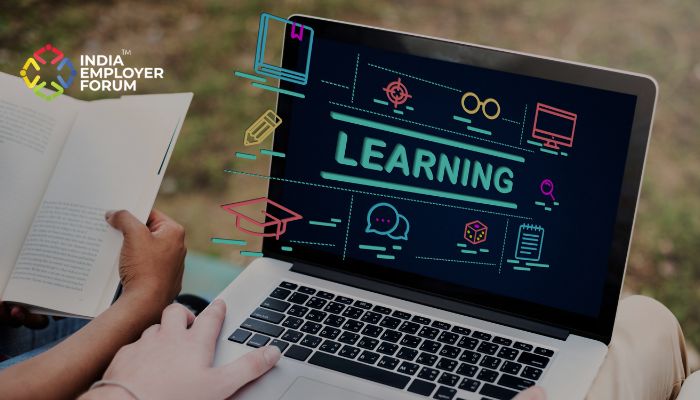5 radical ways to empower teachers in the digital education ecosystem and unlock India’s potential
The pandemic dramatically transformed all spheres of life be it the world of work or education. It accelerated the emergence of disruptive innovation which led us to expand our boundaries and evolve to new modes of teaching such as online teaching. It also dissolved our inhibitions with respect to adopting new technologies. While our immediate response to the unprecedented situation was commendable, it exposed the inadequacies of our existing system of education in terms of infrastructure, adoption of technology and digital skills of our educators.
A recent study conducted by TeamLease EdTech revealed a significant eschewal in using technology with 85% of teachers surveyed expressing the view that they are not comfortable with the use of technology in teaching and another 83% having never delivered any virtual lectures to their students. These numbers are disconcerting in today’s tech-savvy environment especially when 82% of teachers surveyed highlighted that they have never received any training on using online teaching tools and a significant 70% had never used online assessments. As technology is set to revolutionize the world, it is imperative that we address these issues at the source by engaging in educator upskilling programs. The pandemic revealed how poor integration of technology led to a widespread 40-60% learning loss which could have been avoided.
Meaningful change and long-term professional development of teachers can help lay a strong foundation for the technological advancement of our students and future workforce. Although there is a certain amount of reticence among the education fraternity with regard to the integration of education with new-age technologies, greater access to the right skills and tools, will help to change their mind. To bridge the digital gap and enhance digital competence among teaching communities, we propose 5 critical steps:
1. Essential digital Skills Framework to upskill the faculty
As illustrated by the survey many educational institutions and educators are not digitally-transformed organisations. To up-skill the faculty and the institution, HEIs must arrive at an Essential Digital Skills Framework which consists of digital tools, digital collaboration, digital information, digital literacy, digital safety and wellbeing. This will help to create high-value learning content and facilitate blended learning.
2. Continuous Professional development programs
Training in technological and pedagogical skills will help to remove the hesitation in leveraging the advantages of technology. The provision of large-scale training to cultivate these skills will support educators in combining multiple modes of delivery – online, offline and blended to effectively facilitate learning.
3. Developing targeted tools and programs
Teaching is a differentiated profession impacted by several factors such as location, type and mode of delivery, education level etc. One-size-fits-all approach to professional learning is not as effective as targeted efforts. Therefore, keeping in view of specific needs, HEIs must consider implementing a tailored approach in active collaboration with edtech companies to cater to the specific needs of educators. This will help to develop the necessary tools to effectively address the needs and context of specific educational frameworks.
4. Strategic partnerships
Digital programmes must be framed in alignment with the demands of the present and the future. This will involve active collaboration of the government, HEIs and private sector players. Strategic partnerships and programmes among these stakeholders to train, equip and empower teachers with digital skills can help to modernize the education system and leave no student behind.
5. Rethinking faculty exchange
As higher education institutions around the country accelerate their digitalisation plans, they must engage in faculty exchange programs that will help to push boundaries and expand the full potential of technology to create new pedagogy that is able to leverage the full expanse of these new tools. Exchange programs involving digitally empowered teachers can lead to exponential growth in the digital learning space as they share their success stories and boost the confidence of others in using digital tools. This will help to create a learning and sharing platform where teachers can brainstorm, discuss, and work together to navigate learning and education in a rapidly transforming digital world.
Education is a collective endeavour that lays the foundation of an equitable society. In a world that is rapidly being transformed by technology, we must equip our educators with the necessary skills to stay abreast with the latest advancements in technology so that they can continue to kindle the spirit of enquiry in their students. The reach of the Internet and the ubiquity of smart devices has led to the beginning of a new era of ‘anytime and anywhere education’, however, it is still the teacher who holds the key to inspire, for ‘education is not the filling of a pail but the lighting of a fire’.
You might also be interested to read:Embracing AI and Human Collaboration for Greater Productivity and Innovation






